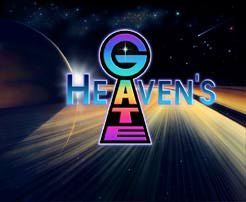Alternate History: it is a subgenre of fiction that I am
getting in to more and more as I evolve my taste of Sci-fi/fantasy. JonathanStrange & Mr. Norrell had some of it, but what better way to really dive
into it than from a book written by one of the modern masters of Science
Fiction? And I feel like I need to include that this alternate history is primarily American
History. How much fun would it have been to have Thomas Jefferson as a revered
witch, Benjamin Franklin as a magician, George Washington as a martyr? I cannot
think of a more masterful take on American alternate history with folklore tied
into it.
The tale of Alvin Maker begins like any good, kickass Orson Scott
Card sci-fi story: a child with a unique talent that he/she does not quite
understand and is punished unmercifully for it. In this case, it is the torch, young Peggy Guester. She is the
first person we are introduced to and though she plays a majour part in the
protagonist’s role, she is mentioned very little.
The untimely death of the eldest son happens just as Alvin
is making his impromptu appearance into this world, being born only with the
help of the little girl whose knack is that of torch. She foresees his powers, and is able to realize that he is
the seventh son of a seventh son.
The Seventh Son is also my introduction to this particular
bit of folklore; that magical superstitious sensation of seventh son and better yet, seventh
son of a seventh son. Turns out Orson Scott Card did a bit of
research on that.
As a devout Mormon, he also has a majour Christian influence
in this story. But because it is during that pre-Mormon-anti-gay-Extremist part
of his life, it is actually not the sort of Christian influence you might
expect. Preachers in league with the devil, atheist protagonists, highly
religious figures who unknowingly succumb and submit to the powers of knacks,
hex and spells, and perhaps best of all, this quote from Armour-of-God Weaver
when discussing an equally awesome character:
“They
say he knew that wizard Ben Franklin. And that atheist from Apalachee Tom
Jefferson.”
Two of my favourite historical figures. And made all the
more badass in this alternate history. Not all Christians in this book are
crazy, but for the most part, there is a clear, often hostile line drawn between
the Christians and the practice that the others have for an active, powerful working
spirit world.
Oh and the other great part about the above mentioned quote
by Armor-of-God, the man he is talking about is a lonesome, vagrant story
teller who walks around the American frontier with two goals: 1 – to have a
vision (which never happens, no matter how hard he tries); 2 – to exchange
honest labour for food/shelter and the ability to swap stories. His name is
Taleswapper, and though he is a great character, really the best in the book,
he lets it slip that his real name is William Blake. What a
fantastic (fictional) historical twist!
Alvin experiences pain through his own evil doings, cheats
death and learns to defeat it, but what everyone suspects is that he has to
actually use special powers to cheat death. Meaning that he both possesses
special powers and is being hunted, rather creatively, by some evil force. We
learn to call this force The Unmaker,
thanks to Bill Blake’s eloquence. The Unmaker and some devilish being have it
out for him, and ironically, so do the hardcore Christians of early America. Through
his power, the will and spiritual/philosophical goodness of the natives (called
reds in this story), and Taleswapper’s cleverness, he is able to learn some
balance between his unique gift and the evil that is both hunting him, and
working its way inside of him. For a relatively short novel, it is magnificent
with typical Orson Scott Card torture towards an unknowingly powerful child.
Whether
or not Book Two and all the others slow down, Seventh Son is absolutely fantastic and a refreshing jolt of
creative fantasy that doesn’t just rely on children’s love of monsters and
spells (no offense Harry Potter fans) nor does it require goblins, trolls or
elves to be truly engaging (again, no offense to my Lord of the Rings readers).






